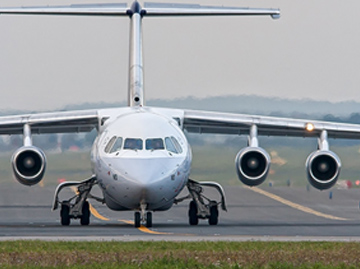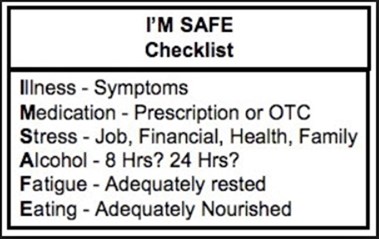- Don’t let lack of sleep affect your fitness to fly.

Pilot fatigue contributed to an incident where an Avro 146 jet received two separate warnings for flying below the minimum altitude, according to an ATSB report.
The incident occurred on 23 June 2015 when the captain and first officer of the Jet Express aircraft were flying from Perth to Granny Smith Airport, north of Kalgoorlie Western Australia. The aircraft had five crew and 67 passengers on board.
While approaching Granny Smith Airport, the captain observed the radio altimeter (RADALT) indicating 500 ft and the electronic ground proximity warning system (EGPWS) called ‘500’, both indicating the aircraft was 500 ft above the ground. Shortly afterwards, the crew received an EGPWS ‘DON’T SINK’ warning. The first officer then observed the RADALT indicating 380 ft and the vertical speed indicator showing about 100 ft per minute descent. The captain immediately applied nose-up pitch and increased the thrust. The aircraft climbed and the captain levelled the aircraft off to remain clear of cloud. The crew then received a second ‘DON’T SINK’ warning. The first officer noted the RADALT indicating 410 ft and the captain immediately initiated a go-around, climbing to 4,000 ft AMSL.
Due to the time spent operating with the aircraft in the approach configuration, and the possibility of holding required in Perth, the captain elected to divert and land at Kalgoorlie.
In the 24 hours before signing on for duty, the captain had about three hours’ sleep and felt irritable, with poor concentration, heavy eyes, and slow thinking processes. The captain believed decision-making had been affected by lack of sleep.
This incident serves as a warning to pilots on how fatigue can affect performance. In fact, less than six hours sleep in the previous 24 hours is associated with degraded operational performance and increased error rates.
Read the report: Flight below minimum altitude involving an Avro 146, VH-NJW, near Granny Smith Airport, Western Australia, on 23 June 2015
Safety message
Prior to flight, it is important for pilots to assess their fitness to fly. The following checklist provides a quick reference.
- Don’t let lack of sleep affect your fitness to fly.
- Less than 6 hours sleep in the previous 24 hours is associated with degraded operational performance and increased error rates.
- Fatigue research has demonstrated that humans are quite poor at determining how fatigued they actually are.

A description of aeromedical factors is available in the US Federal Aviation Authority Pilot’s Handbook of Aeronautical Knowledge.


